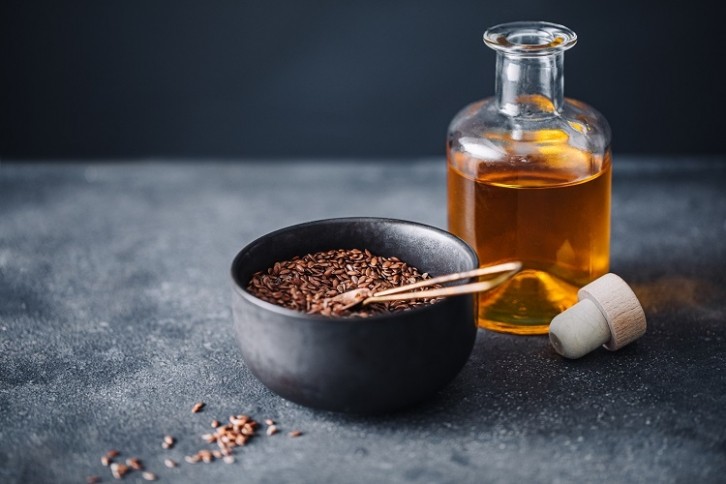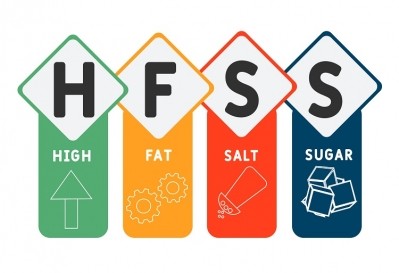How the push for ‘seed oil free’ is heading to Europe

Seed oils are increasingly under the microscope.
A small but growing group of campaigners say there is mounting evidence that links their consumption to a number of serious health concerns, from chronic inflammation to heart disease and some types of cancer.
And despite pushback on the veracity of these claims by other health and nutrition experts, the calls have led to growing consumer interest in products that are seed oil free.
So much so, that earlier this month the Seed Oil Free Alliance launched the first dedicated certification program to provide brands and manufacturers with a route to verify their seed oil free status.
And though currently only partnered with US brands and restaurants, the independent certifying body tells FoodNavigator that a number of EU food products are also set to announce certification “in the near future,” amid rising concerns around the ingredient on both sides of the Atlantic.
‘Mounting evidence’ against seed oils
Seed oils are widely used as both cooking oils and in a huge range of consumer-packaged goods, from confectionery to snacks and condiments. They include rapeseed, soybean, sunflower, cottonseed, corn, grapeseed, rice bran, and safflower – sometimes referred to by critics as ‘the hateful eight.’
The Seed Oil Free Alliance estimates that 20% of average caloric intake in Europe is made up of these seed oils, says chief innovation officer Corey Nelson. “According to the UN Food and Agriculture Organization, average EU per capita consumption of vegetable oils is about a third less than in the US and is projected to decline slightly this decade. So, I would say approximately 20% seed oils as average of total calories, give or take, though it will vary across EU member states. This is still very high, considering that modern seed oils didn’t exist in the human diet before the 20th century, and have resulted in a dramatic increase in polyunsaturated Omega-6 fats.”
These polyunsaturated Omega-6 fats can’t be produced by the body and so are an essential part of a healthy diet. They help stimulate skin and hair growth, maintain bone health, regulate metabolism, and maintain the reproductive system. “Some of these fatty acids, such as Arachidonic Acid, are found in abundance in the brain and are essential for the formation of new neurons and synapses,” adds nutritional expert Alexa Mullane. “These fats are essential for the proper functioning of our nervous system, and we do need to include them in the diet in small amounts.”
But, says Nelson, the requirements are as low as 1-2% of daily calories – far below current consumption levels in the US and Europe.

Rising health concerns over seed oils
These high levels of consumption have seen the micronutrient linked to a wide range of health issues, including chronic inflammation, weight gain, heart disease and some cancers. One recent population-based cohort study, published in April, associated them with a greater overall risk of mortality.
“We take the position that seed oils are entirely unnecessary as part of a healthy diet, and that research suggests there are significant risks associated with current high intake levels,” says Nelson.
The strength of the evidence is hotly disputed however, and not all health experts agree that seed oils are a cause for concern. "There’s a lot of confusion about seed oils," said Dariush Mozaffarian, a cardiologist and the Jean Mayer professor of nutrition at Tufts University Friedman School of Nutrition Science and Policy, in a 2022 Consumer Reports article. "But if you actually read the research, you’ll find that the evidence [against seed oils] is incorrect or incomplete."
He points to an analysis of 30 studies published in 2019 in the journal, Circulation, for example, which found that higher linoleic acid levels, found in seed oils, didn’t raise the risk of heart disease. In fact, those with higher amounts of linoleic acid in their bloodstream were seven percent less likely to develop it.
Seed oil free claims on the rise
But though health experts don’t yet agree on the links between seed oils and negative health outcomes, there appears to be growing interest in seed-oil-free products from consumers regardless.
Some brands are already opting to self-label as ‘seed oil free’ as a result. All products sold by UK-based Hunter and Gather, for example, which includes condiments, coffee and supplements, are seed oil free and this claim is central to their brand philosophy, says co-founder Amy Moring. "Chronic disease is on the increase and with seed oils only joining our diets in the last 110 years, we believe that seed oils are the next tobacco or sugar, when it comes to our health,” she says. The brand recently launched a range of seed oil free mayonnaise into Tesco, all made with 100% pure avocado oil using pressed, wonky, or discarded avocados from Spain.
Snack brand, The Keto Collective, is another example of a brand highlighting the absence of refined seed oils in their ingredient list on packs.
With the launch of its independent certification scheme, the Seed Oil Free Alliance hopes to provide a way to formalise such claims. It launched its standards in July and says there are around 40 products currently somewhere along the certification process, with a handful already verified to carry the claim. The plan is to expand and certify some EU products at some point this year, says Nelson.
The demand for such a certification is likely to rise in tandem with public health concerns around the issue, he believes. “There's a huge increase in online discussions on the issue,” he says. “You're seeing more companies that label both premium fats like avocado oil and olive oil on the front of package, and now you're seeing more self-labelled seed oil-free claims, which coincide with our launch. That wasn't really happening even eight months ago when we first secured the certification mark.”
Exactly how the issue will evolve in Europe remains to be seen though, he adds. “I have spoken about this to people from the EU who tell me they learned about it from American websites and social media. We are still seeing this movement gain momentum in the US, but it remains to be seen whether health-conscious consumers in the EU will become as outspoken as US consumers, or if it will be more of a background issue.
“Ultimately, we believe consumers deserve to know about these problems and the right to make informed choices based on transparency and accurate labelling.”
























